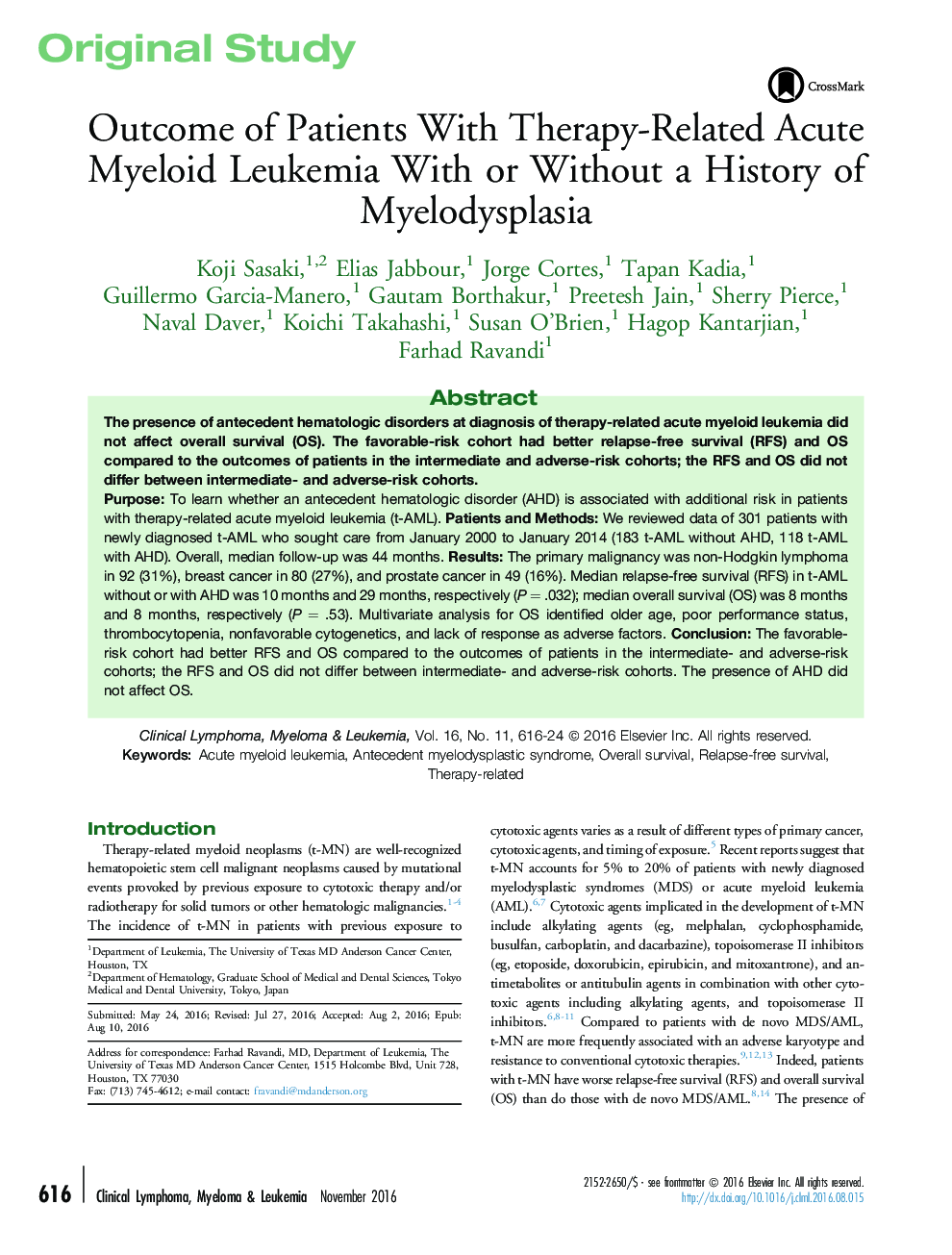| Article ID | Journal | Published Year | Pages | File Type |
|---|---|---|---|---|
| 5582095 | Clinical Lymphoma Myeloma and Leukemia | 2016 | 9 Pages |
PurposeTo learn whether an antecedent hematologic disorder (AHD) is associated with additional risk in patients with therapy-related acute myeloid leukemia (t-AML).Patients and MethodsWe reviewed data of 301 patients with newly diagnosed t-AML who sought care from January 2000 to January 2014 (183 t-AML without AHD, 118 t-AML with AHD). Overall, median follow-up was 44 months.ResultsThe primary malignancy was non-Hodgkin lymphoma in 92 (31%), breast cancer in 80 (27%), and prostate cancer in 49 (16%). Median relapse-free survival (RFS) in t-AML without or with AHD was 10 months and 29 months, respectively (PÂ = .032); median overall survival (OS) was 8 months and 8 months, respectively (PÂ = .53). Multivariate analysis for OS identified older age, poor performance status, thrombocytopenia, nonfavorable cytogenetics, and lack of response as adverse factors.ConclusionThe favorable-risk cohort had better RFS and OS compared to the outcomes of patients in the intermediate- and adverse-risk cohorts; the RFS and OS did not differ between intermediate- and adverse-risk cohorts. The presence of AHD did not affect OS.
